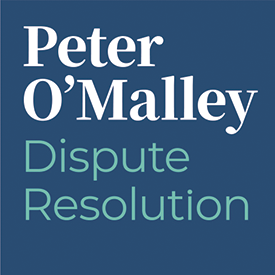Spectrum of Alternative Dispute Resolution processes
Alternative Dispute Resolution (ADR) provides a range of processes to suit the needs of the individual dispute. A consensual outcome is achieved when the parties agree a solution, sometimes with the assistance of an independent third party. A recommended outcome is arrived at when a third party investigates and then recommends a solution which the parties do not have to accept. The imposed outcome is the result of a third party deciding upon the dispute which is then binding upon the parties.

Comparison of primary dispute resolution processes
Alternative Dispute Resolution (ADR) is the umbrella term that includes all dispute resolution processes, apart from litigation. As an alternative to the lengthy and costly process of litigation, ADR receives strong support from the courts. Every dispute is different in nature. The choice of ADR methods allows parties to choose the resolution process that best suits their needs, in either a consensual agreed decision or an imposed decision forum.



